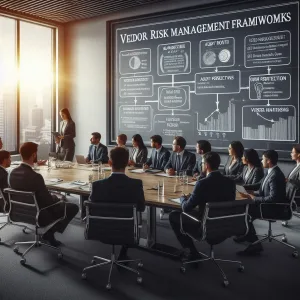In recent years, the landscape of internal auditing has undergone a significant transformation, leading to the emergence of hybrid accounting jobs and hybrid internal auditor roles. These positions blend traditional auditing responsibilities with the flexibility and adaptability required in a hybrid work environment. Hybrid internal auditors are tasked with not only conducting audits but also leveraging technology and remote collaboration tools to ensure effective oversight and compliance. This shift necessitates a re-evaluation of the skills and competencies required for success in these roles.
The demand for hybrid skills in the accounting and auditing sectors is on the rise, driven by the increasing prevalence of remote and flexible work arrangements. According to recent reports, a substantial percentage of chief audit executives indicate that their teams are performing most of their work remotely, highlighting the need for auditors who can navigate both in-person and virtual environments effectively [12]. As organizations adapt to these changes, the ability to work seamlessly across different platforms and maintain strong communication with team members becomes essential.
To equip internal auditors with the necessary skills to thrive in this evolving landscape, specialized training programs are crucial. These programs not only focus on technical auditing skills but also emphasize the importance of soft skills, such as communication, collaboration, and adaptability. By investing in targeted training initiatives, organizations can ensure that their internal audit teams are well-prepared to meet the challenges of hybrid work models, ultimately enhancing their effectiveness and influence within the organization [11][14].
As hybrid internal auditor roles continue to gain traction, the need for comprehensive training programs that address the unique demands of these positions becomes increasingly important. By fostering a culture of continuous learning and development, organizations can better position their internal audit teams for success in a rapidly changing work environment.
Understanding Hybrid Internal Auditors
In the rapidly changing landscape of internal auditing, the emergence of hybrid roles has become increasingly significant. Hybrid internal auditors are professionals who operate in a flexible work environment, combining remote and in-office work. This shift has been largely driven by the need for organizations to adapt to new working conditions, particularly in the wake of the COVID-19 pandemic. As a result, hybrid internal auditors must possess a unique blend of skills to navigate this evolving environment effectively.
Defining Hybrid Roles in Internal Auditing
Hybrid internal auditors are characterized by their ability to work both remotely and on-site, allowing them to engage with teams and stakeholders in various locations. This flexibility not only enhances collaboration but also enables auditors to conduct assessments and audits in real-time, which is crucial for providing timely assurance to organizations. The hybrid model is here to stay, as it offers numerous benefits, including increased productivity and improved work-life balance for auditors [1][3].
Key Skills for Hybrid Internal Auditors
To thrive in hybrid roles, internal auditors must develop a diverse skill set that encompasses both technical and soft skills:
Technical Skills:
- Proficiency in cloud-based auditing tools and software is essential, as many accounting tasks are now performed using these technologies. Auditors must be adept at managing software and interpreting the data it generates [2][3].
- Knowledge of data analytics is increasingly important, enabling auditors to analyze large datasets and identify trends that inform risk assessments and decision-making [7].
Soft Skills:
- Strong communication skills are vital for effective collaboration in a hybrid environment. Auditors must be able to convey complex information clearly and engage with team members across different channels [4][5].
- Adaptability and problem-solving abilities are crucial, as hybrid auditors often face unique challenges that require innovative solutions [6][9].
The Evolving Landscape of Internal Audit
The internal audit profession is undergoing significant transformation due to technological advancements. The integration of advanced technologies, such as artificial intelligence and machine learning, is reshaping how audits are conducted. These tools enhance efficiency and accuracy, allowing auditors to focus on higher-value tasks rather than routine data entry and analysis [2][7].
Moreover, the shift towards hybrid work models necessitates a reevaluation of traditional auditing practices. Organizations must invest in training programs that equip internal auditors with the skills needed to thrive in this new environment. This includes not only technical training on the latest software and tools but also development programs focused on enhancing communication, collaboration, and adaptability [5][6][8].
As the role of internal auditors continues to evolve, understanding the characteristics and skills required for hybrid internal auditors is essential. Training programs that address these needs will be crucial in preparing auditors for the challenges and opportunities presented by the hybrid work model. By fostering a culture of continuous learning and adaptation, organizations can ensure their internal audit teams remain effective and relevant in an ever-changing landscape.
The Importance of Training Programs
As the landscape of internal auditing evolves, particularly with the rise of hybrid work models, the need for specialized training programs has never been more critical. Traditional training methods often fall short in equipping internal auditors with the necessary skills to thrive in a hybrid environment. Here’s a closer look at the gaps in existing training programs, the benefits of targeted training, and the industry trends driving the need for ongoing development.
Gaps in Traditional Training Programs
- Limited Focus on Hybrid Skills: Traditional training programs for internal auditors typically emphasize foundational auditing skills without addressing the unique challenges posed by hybrid work environments. This oversight can leave auditors unprepared to navigate the complexities of remote and in-office work dynamics [12].
- Inadequate Technology Training: With the increasing reliance on cloud-based software and digital tools, many existing programs do not sufficiently cover the technological competencies required for modern auditing practices. Auditors must be adept at managing software and interpreting the data it generates, which is often not included in standard training curriculums [11].
Benefits of Targeted Training for Hybrid Competencies
- Enhanced Flexibility and Productivity: Targeted training programs that focus on hybrid competencies can significantly improve an auditor’s ability to adapt to various work settings. By developing skills that cater to both remote and in-office environments, auditors can enhance their productivity and effectiveness [14].
- Improved Communication and Collaboration: Training that emphasizes communication strategies and collaborative tools is essential for hybrid teams. Such programs can foster better relationships among team members, regardless of their physical location, leading to a more cohesive work environment [10].
- Continuous Professional Development: Ongoing training ensures that internal auditors remain current with industry standards and best practices. This is particularly important in a rapidly changing field where new technologies and methodologies are constantly emerging [12][15].
Industry Trends Necessitating Ongoing Training and Development
- Shift to Hybrid Work Models: The transition to hybrid work is not just a temporary trend; it is becoming a permanent fixture in the accounting industry. A significant percentage of chief audit executives report that their teams are conducting most of their work remotely, highlighting the need for training that addresses this shift [12].
- Emphasis on Technology Integration: As technology continues to reshape the accounting landscape, auditors must be equipped with the skills to leverage these tools effectively. Training programs that focus on technology integration are essential for preparing auditors to meet the demands of modern auditing practices [11].
- Cultural Considerations: Maintaining a strong organizational culture in a hybrid environment presents unique challenges. Training programs that address cultural dynamics and team cohesion are vital for ensuring that internal auditors can thrive in diverse work settings [15].
As the role of internal auditors adapts to the realities of hybrid work, the importance of specialized training programs cannot be overstated. By addressing the gaps in traditional training, emphasizing the benefits of targeted skill development, and responding to industry trends, organizations can better prepare their internal audit teams for success in a hybrid world.
Types of Training Programs Available
As the landscape of internal auditing evolves, particularly with the rise of hybrid accounting jobs, training programs have adapted to equip professionals with the necessary skills. These programs cater to the unique demands of hybrid roles, focusing on technology integration, data analytics, and risk management. Below is an overview of the various training formats and specific programs available for internal auditors.
Training Formats
- Online Courses: Many organizations offer comprehensive online courses that allow auditors to learn at their own pace. These courses often cover essential topics such as internal auditing methodologies, risk assessment, and compliance standards. For instance, the COSO Internal Control Certificate Program is available online and provides 16.5 CPE credits, focusing on internal audit essentials and control frameworks.
- Workshops: Interactive workshops provide hands-on experience and real-world applications of auditing concepts. These sessions often include case studies and group discussions, allowing participants to engage with peers and industry experts. Workshops can be tailored to specific needs, such as fraud detection or technology integration in audits.
- Certifications: Professional certifications, such as Certified Internal Auditor (CIA) and Certified Information Systems Auditor (CISA), are crucial for auditors looking to validate their skills. These certifications often require completion of specific training programs that focus on both traditional auditing practices and modern technological advancements.
Specific Programs Focusing on Key Skills
- Technology Integration: Training programs that emphasize technology integration are essential for hybrid auditors. Courses like the ISO 27001:2022 Information Security Management Systems Lead Auditor combine virtual instructor-led training with self-paced learning, focusing on the intersection of auditing and information security.
- Data Analytics: With the increasing importance of data in decision-making, training in data analytics is vital. Programs that cover data analysis tools and techniques help auditors leverage data for more effective risk assessments and audits. These courses often include practical applications of data analytics in auditing scenarios [15].
- Risk Management: Understanding risk management is crucial for internal auditors, especially in hybrid roles. Training programs that focus on risk assessment methodologies and frameworks, such as the COSO framework, provide auditors with the skills needed to identify and mitigate risks effectively [13].
Role of Professional Organizations
Professional organizations play a significant role in offering relevant training for internal auditors. They provide a variety of resources, including:
- Webinars and Online Learning: Organizations like The Institute of Internal Auditors (IIA) offer webinars that cover trending topics in internal auditing, allowing auditors to stay updated on best practices and emerging issues [14].
- Conferences and Networking Events: These events provide opportunities for auditors to learn from industry leaders and network with peers, enhancing their professional development and knowledge base [10].
- Certification Programs: Many professional organizations offer certification programs that are recognized globally, ensuring that auditors meet industry standards and are equipped with the latest skills required for hybrid roles.
As the demand for hybrid internal auditors grows, so does the need for specialized training programs. By focusing on technology integration, data analytics, and risk management, these programs prepare auditors to navigate the complexities of modern auditing environments effectively. Professional organizations continue to be pivotal in providing the necessary resources and training to support this evolving workforce.
Key Components of Effective Training Programs
In the evolving landscape of internal auditing, hybrid accounting jobs are becoming increasingly prevalent. As organizations adapt to new working models, training programs must also evolve to equip internal auditors with the necessary skills to thrive in hybrid roles. Here are the essential elements that make training programs effective for hybrid internal auditors:
- Hands-On Experience and Real-World Applications: Effective training programs should prioritize practical learning experiences that allow auditors to apply theoretical knowledge in real-world scenarios. Workshops and simulations can provide auditors with the opportunity to engage in hands-on activities, enhancing their understanding of audit processes and tools. This experiential learning approach not only solidifies their skills but also prepares them for the complexities of hybrid auditing environments, where both remote and in-person interactions are common [1][10].
- Continuous Learning and Industry Updates: The field of internal auditing is dynamic, with frequent changes in regulations, technologies, and best practices. Training programs must emphasize the importance of continuous learning to ensure that auditors remain current with industry developments. This can be achieved through regular training sessions, webinars, and access to updated resources that cover emerging trends and technologies, such as data analytics and artificial intelligence. By fostering a culture of ongoing education, organizations can help auditors adapt to the evolving demands of their roles [12][13].
- Mentorship and Networking Opportunities: Incorporating mentorship into training programs can significantly enhance the learning experience for hybrid internal auditors. Pairing less experienced auditors with seasoned professionals allows for knowledge transfer and skill development in a supportive environment. Additionally, providing networking opportunities through workshops, conferences, or online forums can facilitate connections among auditors, fostering collaboration and sharing of best practices. These relationships can be invaluable for career growth and professional development, as they enable auditors to learn from one another and stay informed about industry changes [11][14].
Effective training programs for hybrid internal auditors should focus on hands-on experience, continuous learning, and mentorship opportunities. By integrating these key components, organizations can ensure that their internal audit teams are well-equipped to navigate the complexities of hybrid work environments and meet the challenges of the future.
Measuring the Effectiveness of Training Programs
As the landscape of internal auditing evolves, particularly with the rise of hybrid work environments, it is crucial for training programs to adapt accordingly. This section outlines how to assess the success of training programs designed for hybrid internal auditors, focusing on key performance indicators (KPIs), feedback mechanisms, and alignment with organizational goals.
Key Performance Indicators (KPIs) for Measuring Training Outcomes
To effectively measure the success of training programs for hybrid internal auditors, organizations should establish clear KPIs. These indicators can include:
- Knowledge Retention: Assessing participants’ understanding of key concepts through pre- and post-training assessments can provide insights into the effectiveness of the training content.
- Application of Skills: Evaluating how well participants apply their newly acquired skills in real-world scenarios can indicate the practical value of the training. This can be measured through performance reviews or project outcomes.
- Engagement Levels: Monitoring participant engagement during training sessions, whether in-person or virtual, can help gauge the effectiveness of the delivery method. High engagement often correlates with better learning outcomes.
- Completion Rates: Tracking the percentage of participants who complete the training program can provide insights into its accessibility and relevance to the audience.
Feedback Mechanisms and Participant Assessments
Incorporating robust feedback mechanisms is essential for continuous improvement of training programs. This can be achieved through:
- Surveys and Questionnaires: Collecting feedback immediately after training sessions can help identify areas for improvement. Questions should focus on content relevance, delivery effectiveness, and overall satisfaction.
- Focus Groups: Conducting focus group discussions with participants can provide deeper insights into their experiences and suggestions for future training enhancements.
- Follow-Up Assessments: Implementing follow-up assessments several months post-training can help determine the long-term impact of the training on participants’ job performance and skill application.
Aligning Training Outcomes with Organizational Goals
For training programs to be truly effective, they must align with the broader goals of the organization. This alignment can be achieved by:
- Identifying Organizational Needs: Training coordinators should work closely with leadership to understand the strategic objectives of the organization and tailor training programs to meet these needs.
- Setting Clear Objectives: Each training program should have specific, measurable objectives that reflect both the skills required for hybrid auditing roles and the organization’s goals.
- Regular Review and Adjustment: Continuous evaluation of training outcomes against organizational performance metrics can help ensure that training remains relevant and effective in meeting evolving business needs.
By focusing on these key areas, organizations can effectively measure the success of their training programs for hybrid internal auditors, ensuring that they are well-equipped to navigate the complexities of modern auditing environments. This approach not only enhances individual auditor performance but also contributes to the overall agility and effectiveness of the internal audit function within the organization.
Future Trends in Hybrid Accounting Jobs
As the accounting profession evolves, particularly within internal audit, the emergence of hybrid roles is becoming increasingly prominent. These positions blend traditional auditing skills with technological proficiency, necessitating a shift in training programs to equip professionals for the future. Here are some key insights into the trends shaping hybrid internal audit jobs and the training needs that accompany them.
Emerging Technologies and Their Impact on Auditing Roles
The integration of advanced technologies is transforming the landscape of internal auditing. Tools that generate clear, tamper-proof audit trails are becoming essential, ensuring compliance and traceability in audit activities [13]. As organizations adopt these technologies, auditors must be adept at using them to assess and monitor risks effectively. This shift emphasizes the need for training programs that focus on:
- Data Analytics: Understanding how to analyze large datasets to identify trends and anomalies.
- Automation Tools: Familiarity with software that automates routine audit tasks, allowing auditors to focus on more complex issues.
- Cybersecurity Awareness: Knowledge of security protocols to protect sensitive financial data.
Shifts in Job Requirements and Skill Sets
The demand for hybrid auditors is leading to significant changes in job requirements. Future internal auditors will need to possess a diverse skill set that includes both technical and soft skills. Key areas of focus include:
- Technical Proficiency: New hires must be tech-savvy, capable of learning new systems quickly, and comfortable with digital tools [7]. This includes understanding cloud-based solutions and remote auditing practices, which have gained traction in recent years [11].
- Critical Thinking and Problem Solving: As the complexity of audits increases, auditors will need to apply critical thinking to navigate challenges and provide valuable insights to their organizations.
- Communication Skills: The ability to convey complex information clearly to stakeholders is crucial, especially in hybrid work environments where remote communication is common.
Importance of Adaptability and Lifelong Learning
In a rapidly changing profession, adaptability is paramount. Internal auditors must commit to lifelong learning to stay relevant and effective. Training programs should emphasize:
- Continuous Professional Development: Firms will need to refresh their employees’ skills regularly, potentially through in-house training or partnerships with educational institutions [10]. This could involve workshops on new technologies or sustainability reporting practices.
- Flexibility in Learning Approaches: With the rise of remote work, training programs should incorporate flexible learning options, such as online courses and virtual workshops, to accommodate diverse learning styles and schedules.
The future of hybrid internal audit roles is bright but requires a proactive approach to training and development. By focusing on emerging technologies, evolving skill sets, and the importance of adaptability, organizations can prepare their internal auditors for the challenges and opportunities that lie ahead. This strategic investment in training will not only enhance the capabilities of auditors but also ensure that they remain valuable assets to their organizations in an increasingly complex financial landscape.
Conclusion
In the evolving landscape of internal auditing, the shift towards hybrid work models necessitates a robust approach to training programs tailored specifically for hybrid internal auditors. As organizations adapt to these changes, it is crucial to recognize the significance of equipping auditors with the necessary skills to thrive in a hybrid environment.
- Importance of Training Programs: Training programs designed for hybrid internal auditors are essential for ensuring that professionals are well-prepared to navigate the complexities of remote and in-office work. These programs not only enhance technical skills but also foster adaptability, enabling auditors to effectively manage their responsibilities in a dynamic work setting [12].
- Investment in Employee Development: Organizations must prioritize investment in employee development to cultivate a workforce that is resilient and adaptable to change. By providing comprehensive training, companies can enhance their internal audit functions, ensuring that teams are equipped to meet the demands of a hybrid work environment [10][15]. This investment not only benefits the auditors but also contributes to the overall effectiveness and influence of the audit function within the organization.
- Call to Action for HR Professionals: HR professionals play a pivotal role in shaping the future of internal auditing. It is imperative for them to collaborate with training coordinators to create effective training initiatives that address the unique challenges posed by hybrid work models. By working together, they can develop programs that not only enhance technical competencies but also promote a strong organizational culture that thrives in a hybrid setting [14].
In summary, as the internal audit profession continues to evolve, the need for targeted training programs for hybrid auditors becomes increasingly clear. By investing in employee development and fostering collaboration among HR and training coordinators, organizations can ensure that their internal audit teams are not only prepared for the present but also equipped for the future.
Find out more about Shaun Stoltz https://www.shaunstoltz.com/about/
This post was written by an AI and reviewed/edited by a human.



